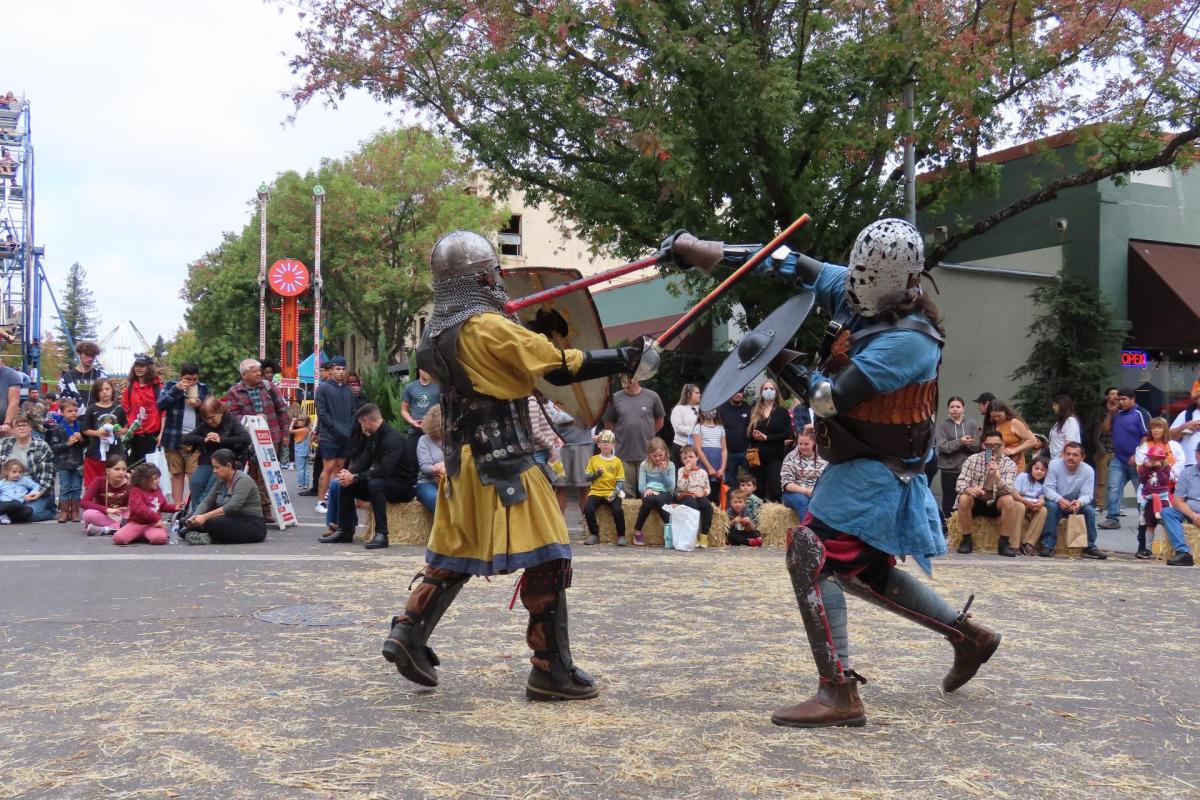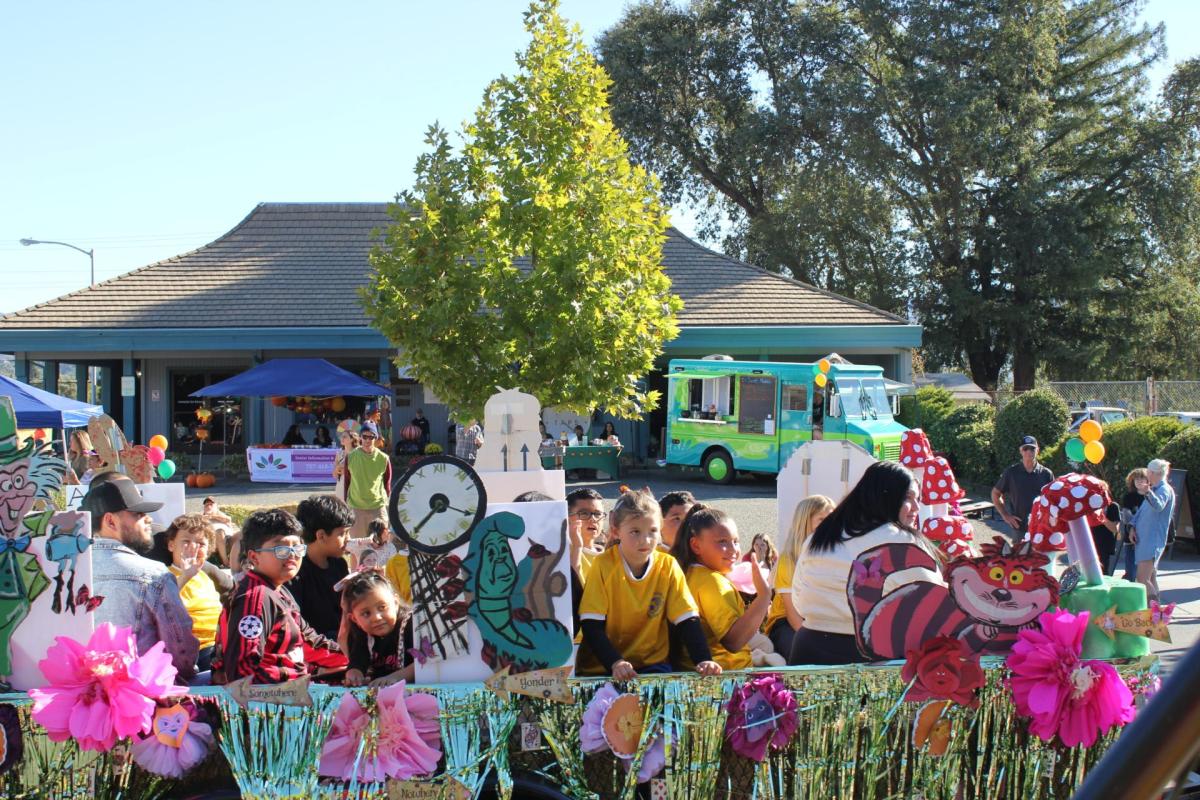Ukiah has become rural Mendocino County’s playground
Jackie Krentzman is a Bay Area-based writer and editor.
Dave Dick drives 40 minutes to Ukiah at least three times a week — but not for work. He is commuting for fun. Dick, like many in rural Mendocino County, travels to Ukiah because it is the only place in the county with large-scale recreational facilities and programming.
“I play in a men’s softball league, my wife and I play in the volleyball league, and my son plays youth soccer,” says Dick. “The facilities here are fantastic, and we don’t mind the drive. Once we’re in town, we use that as an opportunity to shop at Costco and eat at In-N-Out Burger.”
Most of the communities in the county are small and unincorporated, so they don’t have the resources to provide park and recreation services. Recreation Supervisor Jake Burgess estimates that half of the people who use Ukiah’s recreation services live outside the city. They come from Comptche, Boonville, Willits, and even Elk — a two-hour drive away. He thinks that the city’s population of 16,000 at least doubles during the day, as people come from all over the county to work and play.
That’s in part because Mendocino County, like so many rural California counties, is financially strapped. “Right now — especially with the recent rollback of federal funding — as well as the expiration of some COVID-era funding, you’re seeing this huge gap in the demand for services in these areas and the ability of these counties to provide those services,” says Community Development Director Craig Schlatter.
Ukiah has long been the recreation hub of Mendocino County. But beginning with the pandemic, demand soared as people sought out more outdoor recreation and social activities. According to Burgess, youth basketball participation has swelled from 700 to 800 pre-pandemic to over 1,100 last year, with most of those new registrants coming from outside city limits. The number of swimming lessons provided grew from 900 to 1,400 over the same period.
“We are especially proud of the swim lessons,” says Burgess. “We have an extensively trained staff. There’re a lot of creeks and rivers in our county for kids to learn how to swim. We actually lose money operating the pool, but we feel it’s a vital service.”
Ukiah is also the county’s entertainment hub. Each Sunday in the Park concert attracts more than 4,000 people. Ukiah’s annual Pumpkinfest draws more than 15,000 visitors. The newest program, Dive-In Movies at the municipal pool, has been a big hit, averaging more than 500 people per show. (First screening: Jaws.) People can watch the movie from the pool deck or while floating in an inner tube and buy food from local vendors.
All these activities serve a dual purpose — fun and community-building.
“The free concerts are basically like giant mixers,” Burgess says. “It’s where people see their friends, or they see people they haven’t seen in a while. It’s a giant kind of outdoor cocktail party.”
Ukiah has managed to finance these services without dipping into the General Fund or assessing new taxes. Local companies sponsor the larger events, the city receives a percentage of vendor sales, and program participants pay registration fees. (Non-Ukiah residents don’t have to pay a higher rate.) The city also has a facility-sharing agreement with the school district and receives grants and private donations.
In its quest to maximize recreation opportunities, Ukiah last year annexed nearly 800 acres of open space on its western flank to build trails, preserve open space, and protect the Ukiah Valley watershed. Ukiah and the nonprofit Ukiah Valley Trail Group will soon begin constructing hiking trails in the Lookout Peak Trail Complex. The goal is to complete 20 miles of trails for hikers and mountain bikers, which will have the added benefit of bringing tourism dollars into the city. Seventy acres are set aside for up to 20 units of above moderate-income housing.
“We were seeing right outside the city limits a lot of sprawl and haphazard growth, with no real concern for the environment,” says Schlatter. “We wanted to be able to develop the land more intentionally.”
The annexation was no sure thing. It required the approval of the Mendocino County Local Agency Formation Commission (LAFCo), which had, for almost four decades, turned down the city’s annexation requests out of concerns over traffic, farmland conversion, and resource impacts. This time was different, says Mendocino LAFCo Executive Officer Uma Hinman.
“The city put in a lot of effort, thoughtfully worked the annexation into its General Plan, collaborated with a number of agencies, sought community alignment, and demonstrated that it recognized the importance of carefully managing this area for responsible growth,” she says.
Schlatter says that the successful annexation is the culmination of 50 years of planning. “The city wanted to honor the original vision of the 1970s council that saw the Ukiah Valley and the city of Ukiah as one community,” he says. “The way we look at it, if people in the county are doing well, that means people in the city of Ukiah are probably doing well too.”



